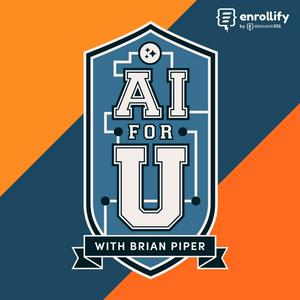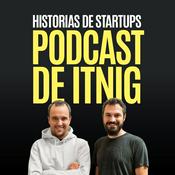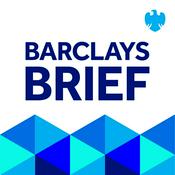51 episodios

Ep. 36: AI, Content Marketing, and the New Rules of Search Discoverability
01/1/2026 | 34 min
In this episode, Brian sits down with Ross Simmonds, Founder and CEO of Foundation Marketing, for a sharp and unfiltered look at how AI is rewriting the rules of higher education, content strategy, and the entire student decision journey. They dig into the cultural roadblocks that keep institutions stuck, the game-changing speed of AI-assisted content, and the rise of answer engine optimization. Ross unpacks the new world of discoverability, why Reddit, YouTube, and TikTok now carry real weight in recruitment, and what colleges must do to thrive as AI agents begin researching and making recommendations on behalf of future students.Join us as we discuss: [2:23] Where AI excels in content marketing and where it falls short[15:35] What to do about the collapse of organic traffic and the zero click problem[22:11] How to repurpose content everywhere without burning out your teamCheck out these resources we mentioned during the podcast:ElevenLabsWisprFlowCreate Once, Distribute ForeverTo hear this interview and many more like it, subscribe on Apple Podcasts, Spotify, or our website, or search for AI for U with Brian Piper in your favorite podcast player.Episode prompt: You are a channel research expert with a deep understanding of audience behavior.I'm going to ask you to do research related to [Institution name and URL]For each potentially relevant platform, conduct a detailed analysis:**REDDIT:**- Search for existing subreddits related to our institution- Search for mentions in relevant subreddits (r/college, r/gradadmissions, program-specific subs)- Analyze what questions get asked about institutions like ours- Document sentiment and common themes- Identify if we're being cited in LLM responsesAssessment:- Does this platform influence our target audience? (High/Medium/Low)- Do we currently have a presence? (Yes/No/Unofficial)- What would strategic presence require?- What are risks of not having a presence?**LINKEDIN:**- Analyze what content about our institution performs well- Review what competitors are publishing- Assess if our target audience(s) are active here- Evaluate if LinkedIn articles/newsletters could expand our reachAssessment: [Same framework as Reddit]**YOUTUBE:**- Search for content about our institution and programs- Analyze view counts and engagement on existing videos- Research what video content performs well for competitors- Identify gaps in video content about our offeringsAssessment: [Same framework]**TIKTOK:**- [If relevant to audience] Search for our institution and programs- Analyze student-generated content- Research competitors' presence and performance- Assess cultural fit and resource requirementsAssessment: [Same framework]**RANKING/DIRECTORY SITES:**- Identify which sites cite us or competitors- Document which appear in LLM responses- Assess if we're listed/featured appropriately- Determine if pay-to-play models are worth investmentGuest Name: Ross SimmondsGuest Social: https://www.linkedin.com/in/rosssimmonds/Guest Bio: Ross is the founder of Foundation, a B2B content marketing agency and the founder of Distribution.ai, an innovative software helping brands and creators spread their stories with ease. He's an Amazon best selling author of the book: Create Once Distribute forever and has worked with organizations all over the world ranging from some of the fastest-growing startups, well known higher education institutions and global Fortune 500 brands. Ross has been named one of the most influential marketers in the world by multiple marketing publications and firms like BuzzSumo, SEMRush, Moz and more. Ross has received the Harry Jerome Young Entrepreneur Award and has been named one of the Top 50 CEOs in Atlantic Canada. - - - -Connect With Our Host:Brian Piperhttps://www.linkedin.com/in/brianwpiper/About The Enrollify Podcast Network:AI for U is a part of the Enrollify Podcast Network. If you like this podcast, chances are you’ll like other Enrollify shows too! Enrollify is made possible by Element451 — The AI Workforce Platform for Higher Ed. Learn more at element451.com. Hosted by Simplecast, an AdsWizz company. See pcm.adswizz.com for information about our collection and use of personal data for advertising.

Ep. 35: AI Is the Medium, Not the Message: How to Stay Authentic in an AI World
18/12/2025 | 30 min
How do you stay authentic when AI touches everything you create? In this episode, we talk with Stu Eddins, Chief Digital Strategy Officer at Stamats, about the human side of artificial intelligence and why authenticity matters more than ever. Stu shares how AI has quietly shaped digital marketing for years and why technology alone will never replace genuine connection. The conversation turns to higher education and the growing pressure to sound real in a world of automated tools and machine-written messages. Stu explains how schools and marketers can use AI to amplify their voice instead of losing it, focusing on clarity, purpose, and the kind of communication that actually feels human.Join us as we discuss: [2:39] Is AI a bubble or the next big shift?[9:48] AI as the medium, not the message[17:27] How personalization and agentic AI could impact higher edCheck out these resources we mentioned during the podcast:NotebookLMTo hear this interview and many more like it, subscribe on Apple Podcasts, Spotify, or our website, or search for AI for U with Brian Piper in your favorite podcast player.Episode prompt: You are a strategic marketing expert with a deep understanding of higher education. I need to conduct a competitive content analysis to identify gaps in my institution's messaging and content. I want you to help me systematically compare multiple competitor pages against my own to discover what I'm missing or where I could strengthen my positioning.**My Context:**- Institution: [Your institution name and type]- Content being analyzed: [Program page, admissions page, financial aid, etc.]- My page URL: [Your URL]- Target audience: [Who this content serves]- Key goals for this content: [What should it accomplish]**Competitor URLs to analyze:**1. [Competitor 1 URL]2. [Competitor 2 URL]3. [Competitor 3 URL]4. [Competitor 4 URL]5. [Competitor 5 URL][Add up to 10 total]Please visit each URL and analyze the content. Then provide:1. **Common Themes**: What topics, benefits, or information appear on 3+ competitor pages but are missing or underrepresented on mine?2. **Unique Differentiators**: What unique angles is each competitor taking that others aren't?3. **Content Depth Comparison**: Where do competitors provide more comprehensive information than my page?4. **Messaging Patterns**: What language, tone, or framing approaches are competitors using successfully?5. **Missing Questions**: What prospective student questions do competitors answer that I don't address?Guest Name: Stu Eddins, Chief Digital Strategy Officer, StamatsGuest Social: https://www.linkedin.com/in/stueddins/Guest Bio: Stu leads a team of digital marketing and analytics professionals that provides strategic support to higher education clients striving to increase awareness and demand generation for their brands and their programs. He brings decades of digital marketing expertise, having led enterprise-level initiatives in advertising and SEO for industries such as healthcare, higher education, ecommerce, and manufacturing.Certified in Google Ads, Analytics, and Tag Manager, Stu uses his background in sales, customer service, analytics, and marketing to plan and implement successful campaigns that address overarching strategic goals and outcomes with data-driven tactics. - - - -Connect With Our Host:Brian Piperhttps://www.linkedin.com/in/brianwpiper/About The Enrollify Podcast Network:AI for U is a part of the Enrollify Podcast Network. If you like this podcast, chances are you’ll like other Enrollify shows too! Enrollify is made possible by Element451 — The AI Workforce Platform for Higher Ed. Learn more at element451.com. Hosted by Simplecast, an AdsWizz company. See pcm.adswizz.com for information about our collection and use of personal data for advertising.

Ep. 34: Guidelines Over Policies: Smarter AI Adoption in Higher Ed
04/12/2025 | 31 min
In this episode, Brian talks with Rob McDole, Director for the Center of Teaching and Learning at Cedarville University, about how AI is transforming the way higher education teaches and learns. The conversation explores how AI supports recall-based learning, helping students move beyond cramming for tests to actually retaining and understanding what they study. They also discuss why institutions need to move past fear and start engaging directly with AI, how guidelines work better than rigid policies in fast-moving environments, and why responsible experimentation is the key to smarter adoption.Join us as we discuss: [5:58] Overcoming hesitation and building responsible AI frameworks[11:17] The wake-up call: “If you’re not using it, your students are”[16:20] AI and learning science: recall, retention, and real understandingCheck out these resources we mentioned during the podcast:Hugging FaceGrok AIChatGPTTransform Your Teaching with Dr. Barbara OakleyUncommon Sense TeachingTo hear this interview and many more like it, subscribe on Apple Podcasts, Spotify, or our website, or search for AI for U with Brian Piper in your favorite podcast player.Episode prompt: This prompt framework comes directly from Geoff Woods, author of The AI-Driven Leader.The acronym stands for:Context: Provide all the specific background information about your unique situation, business, and goals (e.g., “I am the marketing director at an R1 research university that is trying to increase applications and enrollments.”Role: Assign the AI a specific expert persona, such as "an expert higher education marketer with a deep understanding of the admissions funnel" or an "organizational psychologist".Interview: Ask the AI to interview you with a set number of questions (e.g., "ask me one question at a time, up to three questions") to gain deeper context.Task: This is the final step where you tell the AI what to accomplish after it has gathered all the necessary information from the interview, such as, “based on the previous campaigns and initiatives we’ve attempted, create a list of additional opportunities and options that may help us better reach our goals.”Guest Name: Dr. Robert McDole, Director for the Center of Teaching and Learning at Cedarville UniversityGuest Social: https://www.linkedin.com/in/robert-mcdole-509ba1113/Guest Bio: Dr. Rob McDole is the Director of the Center for Teaching and Learning at Cedarville University, where he leads initiatives in faculty development, instructional innovation, and online education. Since assuming this role in 2016, he has overseen the design and delivery of workshops, consultation services, and technical support to promote excellence in pedagogy across the university.Dr. McDole earned his PhD in Educational Leadership from Columbia International University, where he developed a strong foundation in academic leadership, instructional strategy, and the effective integration of technology in higher education. His academic background informs his work in supporting Cedarville’s mission of equipping faculty and students for excellence in teaching and learning. A Cedarville alumnus (Class of 1998), Dr. McDole returned to his alma mater after serving as the Director of Online Education at Multnomah University in Portland, Oregon. There, he led the development and implementation of online programs, gaining extensive experience in distance learning and instructional design. At Cedarville, he oversees a dynamic team at the Center for Teaching and Learning (CTL), providing services such as faculty consultation, course design support, multimedia production, and technology integration. His team plays a vital role in enhancing the university’s educational practices and helping faculty adapt to evolving instructional needs. Dr. McDole is also the co-host of the Transform Your Teaching podcast, where he explores contemporary issues in education—from pedagogy and learning theory to emerging tools like artificial intelligence and their practical application in the classroom. His leadership encourages innovation while staying grounded in Cedarville’s Christ-centered academic mission. - - - -Connect With Our Host:Brian Piperhttps://www.linkedin.com/in/brianwpiper/About The Enrollify Podcast Network:AI for U is a part of the Enrollify Podcast Network. If you like this podcast, chances are you’ll like other Enrollify shows too! Enrollify is made possible by Element451 — The AI Workforce Platform for Higher Ed. Learn more at element451.com. Hosted by Simplecast, an AdsWizz company. See pcm.adswizz.com for information about our collection and use of personal data for advertising.

Ep. 33: AI at the Core: What It Really Means to Be an AI-First Higher Ed Institution
20/11/2025 | 30 min
What does it really mean to be an AI-first institution? In this episode, Kyle Campbell, Founder and Managing Director of Education Marketer, joins Brian to break down how higher education can move beyond surface-level innovation. Kyle shares how to make AI part of the system, not just a shortcut. He also explains why leaders need the most AI education and how technology can make university messaging sound more human. This conversation pushes past buzzwords and shows what real transformation looks like.Join us as we discuss: [2:32] Why content is no longer a differentiator in higher ed marketing[1-:25] How to avoid the “better trap” by creating new systems instead of faster old ones[17:38] The end of the knowledge worker and the rise of creative catalystsCheck out these resources we mentioned during the podcast:VirtuousAIExponential View Category PiratesTo hear this interview and many more like it, subscribe on Apple Podcasts, Spotify, or our website, or search for AI for U with Brian Piper in your favorite podcast player.Episode prompt: You are a content strategy expert. I'm going to analyze my content performance data against our strategic priorities to identify gaps and misalignments. Conduct a comprehensive audit that reveals where we're missing opportunities.Content Data to Analyze: [PASTE YOUR EXPORTED CONTENT DATA - social posts, blog titles, email subjects, etc.]Platform: [SPECIFY: LinkedIn, Twitter/X, Instagram, Blog, etc.]Time period: [DATE RANGE]Engagement metrics: [INCLUDE IF AVAILABLE]Institutional Context:Institution type: [PUBLIC/PRIVATE, SIZE, RESEARCH LEVEL]Strategic priorities: [LIST YOUR TOP 3-5 INSTITUTIONAL GOALS]Brand values: [CORE VALUES YOUR INSTITUTION PROMOTES]Target audiences: [PRIMARY AUDIENCE SEGMENTS]Desired reputation: [WHAT YOU WANT TO BE KNOWN FOR]Analysis Requested:Content CategorizationCategorize all content by theme/topicCalculate the percentage of content in each categoryIdentify dominant themes vs. neglected areasStrategic Alignment AssessmentMap content categories to our strategic prioritiesCalculate what % of content supports each priority and how much content doesn't support any current strategic prioritiesIdentify priorities with minimal content supportAudience-Content MatchAnalyze if content themes match audience interestsIdentify content getting engagement from the wrong audiencesSpot missed opportunities with existing followersGap IdentificationList strategic priorities with Identify audiences we're not effectively reachingHighlight brand values not reflected in contentActionable RecommendationsSuggest specific content topics to increaseRecommend content to reduce or eliminatePropose content calendar adjustmentsOutput Format: Provide results in a clear report format with:Executive summary of key findingsData visualized as percentagesTop 3 critical gaps to address immediately90-day action plan for alignmentFocus on patterns and insights I might miss in manual review, but flag any categorizations that seem questionable for human verification.Guest Name: Kyle Campbell, Founder, Managing Director, Education MarketerGuest Social: https://www.linkedin.com/in/kyledavecampbell/Guest Bio: Kyle Campbell is a higher ed marketing consultant and the managing director of Education Marketer, an insights and consultancy firm for higher ed. Every week on a Tuesday, he publishes The Education Marketer Newsletter, an accessible (yet hard-hitting) overview of the state of the sector and what matters to education marketers. He brings over a decade of experience for university professionals looking to build and engage student audiences. - - - -Connect With Our Host:Brian Piperhttps://www.linkedin.com/in/brianwpiper/About The Enrollify Podcast Network:AI for U is a part of the Enrollify Podcast Network. If you like this podcast, chances are you’ll like other Enrollify shows too! Enrollify is made possible by Element451 — The AI Workforce Platform for Higher Ed. Learn more at element451.com. Hosted by Simplecast, an AdsWizz company. See pcm.adswizz.com for information about our collection and use of personal data for advertising.

Ep. 32: Rethinking Web Traffic: How Conversational AI is Changing Student Search
06/11/2025 | 31 min
Worried about falling website traffic? You’re not the only one. In this episode, Megan Andrews, Digital Strategy Consultant at Squiz, joins us to talk about why fewer clicks do not necessarily mean less engagement, and how conversational AI is changing how students find and interact with information online. She also shares why it’s time to stop obsessing over visitor counts and start measuring real value, how AI-powered search can reveal what students are really thinking, and why there’s no better time to experiment than right now.Join us as we discuss: [2:45] What a dip in organic website traffic really means[10:01] The real challenge: starting before it is perfect[16:34] Why higher education’s culture of sharing is a superpowerTo hear this interview and many more like it, subscribe on Apple Podcasts, Spotify, or our website, or search for AI for U with Brian Piper in your favorite podcast player.Episode Prompt: Replace the items in brackets [] with the specifics for your institution. You may need to focus this prompt down to look for one strategy for one audience depending on the results you get.You are an expert in higher education marketing and AI search discoverability.Your task is to analyze how [institution name], [institution URL], appears in AI-generated search results.Based on the following, generate a list of conversational searches that audiences might run to learn about the school that could be used to test the visibility in ChatGPT around strategic priorities for their target audience.Strategic Priorities: [insert institution’s strategic priorities here or link to URL]Mission Statement: [insert institution’s mission statement here or link to URL]Primary Audiences: [insert institution’s key audiences for reaching strategic priorities]Examples:“Is [institution name] a good school for [priority program/field]?”“What is [institution name] known for?”“Best colleges for business in [state].”“Student experience at [institution name].”“How much does it cost to attend [institution name]?”Run these conversational searches in ChatGPT.For each, capture whether the institution appears in the AI-generated results.Provide a narrative summary that answers:Where and how does the institution appear across AI platforms?What information (facts, claims, rankings, or highlights) do the AI results display?What links, if any, are included (official site, third-party rankings, Wikipedia, etc.)?How well does this representation align with the institution’s strategic priorities, mission, and key audiences?What gaps or risks are present in the current AI search presence? (e.g., outdated info, missing strengths, unfavorable comparisons)Output a single narrative summary, connecting the institution’s visibility back to its mission and strategic goals, and highlighting areas where content or visibility could be improved.Guest Name: Megan Andrews, Digital Strategy Consultant at SquizGuest Social: https://www.linkedin.com/in/meganandrews/Guest Bio: Megan Andrews is a seasoned digital consultant with deep expertise in content strategy, brand development, and user experience. In her role at Squiz, she partners with higher education institutions to modernize their digital presence and create student-centered experiences that drive engagement and outcomes. Her recent work emphasizes the use of AI-powered conversational search tools to help universities better understand user behavior and deliver more intuitive, impactful digital interactions. Previously, Megan worked in content and channel strategy at Stanford University, shaping communications for one of the world’s leading academic brands. With nearly two decades of experience across industries, she brings a unique ability to bridge storytelling, technology, and strategy to help organizations build stronger connections with their audiences. - - - -Connect With Our Host:Brian Piperhttps://www.linkedin.com/in/brianwpiper/About The Enrollify Podcast Network:AI for U is a part of the Enrollify Podcast Network. If you like this podcast, chances are you’ll like other Enrollify shows too! Enrollify is made possible by Element451 — The AI Workforce Platform for Higher Ed. Learn more at element451.com. Hosted by Simplecast, an AdsWizz company. See pcm.adswizz.com for information about our collection and use of personal data for advertising.
Más podcasts de Economía y empresa
Podcasts a la moda de Economía y empresa
Acerca de AI for U
Escucha AI for U, Whitepaper y muchos más podcasts de todo el mundo con la aplicación de radio.net

Descarga la app gratuita: radio.net
- Añadir radios y podcasts a favoritos
- Transmisión por Wi-Fi y Bluetooth
- Carplay & Android Auto compatible
- Muchas otras funciones de la app
Descarga la app gratuita: radio.net
- Añadir radios y podcasts a favoritos
- Transmisión por Wi-Fi y Bluetooth
- Carplay & Android Auto compatible
- Muchas otras funciones de la app


AI for U
Descarga la app,
Escucha.







































